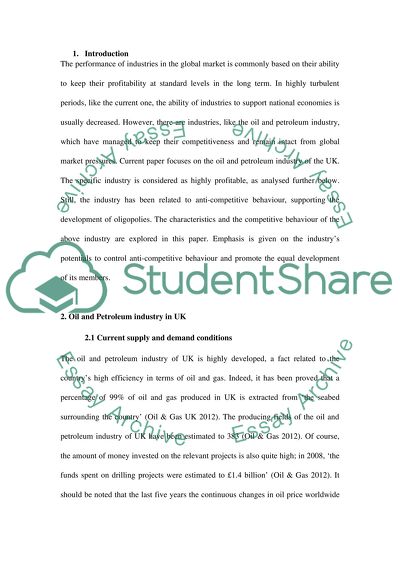Cite this document
(“Oil and Petroleum industry in UK Essay Example | Topics and Well Written Essays - 1750 words”, n.d.)
Oil and Petroleum industry in UK Essay Example | Topics and Well Written Essays - 1750 words. Retrieved from https://studentshare.org/macro-microeconomics/1453505-oil-and-petroleum
Oil and Petroleum industry in UK Essay Example | Topics and Well Written Essays - 1750 words. Retrieved from https://studentshare.org/macro-microeconomics/1453505-oil-and-petroleum
(Oil and Petroleum Industry in UK Essay Example | Topics and Well Written Essays - 1750 Words)
Oil and Petroleum Industry in UK Essay Example | Topics and Well Written Essays - 1750 Words. https://studentshare.org/macro-microeconomics/1453505-oil-and-petroleum.
Oil and Petroleum Industry in UK Essay Example | Topics and Well Written Essays - 1750 Words. https://studentshare.org/macro-microeconomics/1453505-oil-and-petroleum.
“Oil and Petroleum Industry in UK Essay Example | Topics and Well Written Essays - 1750 Words”, n.d. https://studentshare.org/macro-microeconomics/1453505-oil-and-petroleum.


